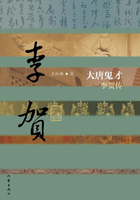THE WAR OF THE WOMEN
Now on the morrow at daybreak, leaving his wolves, Galazi came down from the Ghost Mountain and passed through the gates of the kraal.
In front of my hut he saw Nada the Lily and saluted her, for each remembered the other. Then he walked on to the place of assembly and spoke to me.
"So the Star of Death has risen on the People of the Axe, Mopo," he said. "Was it because of her coming that my grey people howled so strangely last night? I cannot tell, but I know this, the Star shone first on me this morning, and that is my doom. Well, she is fair enough to be the doom of many, Mopo," and he laughed and passed on, swinging the Watcher. But his words troubled me, though they were foolish; for I could not but remember that wherever the beauty of Nada had pleased the sight of men, there men had been given to death.
Then I went to lead Nada to the place of assembly and found her awaiting me. She was dressed now in some woman's garments that I had brought her; her curling hair fell upon her shoulders; on her wrist and neck and knee were bracelets of ivory, and in her hand she bore a lily bloom which she had gathered as she went to bathe in the river.
Perhaps she did this, my father, because she wished here, as elsewhere, to be known as the Lily, and it is the Zulu fashion to name people from some such trifle. But who can know a woman's reason, or whether a thing is by chance alone, my father? Also she had begged me of a cape I had; it was cunningly made by Basutus, of the whitest feathers of the ostrich; this she put about her shoulders, and it hung down to her middle. It had been a custom with Nada from childhood not to go about as do other girls, naked except for their girdles, for she would always find some rag or skin to lie upon her breast. Perhaps it was because her skin was fairer than that of other women, or perhaps because she knew that she who hides her beauty often seems the loveliest, or because there was truth in the tale of her white blood and the fashion came to her with the blood. I do not know, my father;at the least she did so.
Now I took Nada by the hand and led her through the morning air to the place of assembly, and ah! she was sweeter than the air and fairer than the dawn.
There were many people in the place of assembly, for it was the day of the monthly meeting of the council of the headmen, and there also were all the women of the kraal, and at their head stood Zinita. Now it had got about that the girl whom the Slaughterer went to seek in the caves of the Halakazi had come to the kraal of the People of the Axe, and all eyes watched for her.
"Wow!" said the men as she passed smiling, looking neither to the right nor to the left, yet seeing all--"Wow! but this flower is fair!
Little wonder that the Halakazi died for her!"The women looked also, but they said nothing of the beauty of Nada;they scarcely seemed to see it.
"That is she for whose sake so many of our people lie unburied," said one.
"Where, then, does she find her fine clothes?" quoth another, "she who came here last night a footsore wanderer?""Feathers are not enough for her: look! she must bear flowers also.
Surely they are fitter to her hands than the handle of a hoe," said a third.
"Now I think that the chief of the People of the Axe will find one to worship above the axe, and that some will be left mourning," put in a fourth, glancing at Zinita and the other women of the household of the Slaughterer.
Thus they spoke, throwing words like assegais, and Nada heard them all, and knew their meaning, but she never ceased from smiling. Only Zinita said nothing, but stood looking at Nada from beneath her bent brows, while by one hand she held the little daughter of Umslopogaas, her child, and with the other played with the beads about her neck.
Presently, we passed her, and Nada, knowing well who this must be, turned her eyes full upon the angry eyes of Zinita, and held them there awhile. Now what there was in the glance of Nada I cannot say, but I know that Zinita, who was afraid of few things, found something to fear in it. At the least, it was she who turned her head away, and the Lily passed on smiling, and greeted Umslopogaas with a little nod.
"Hail, Nada!" said the Slaughterer. Then he turned to his headmen and spoke: "This is she whom we went to the caves of the Halakazi to seek for Dingaan. Ou! the story is known now; one told it up at the kraal Umgugundhlovu who shall tell it no more. She prayed me to save her from Dingaan, and so I did, and all would have gone well had it not been for a certain traitor who is done with, for I took another to Dingaan. Look on her now, my friends, and say if I did not well to win her--the Lily flower, such as there is no other in the world, to be the joy of the People of the Axe and a wife to me."With one accord the headmen answered: "Indeed you did well, Slaughterer," for the glamour of Nada was upon them and they would cherish her as others had cherished her. Only Galazi the Wolf shook his head. But he said nothing, for words do not avail against fate.
Now as I found afterwards, since Zinita, the head wife of Umslopogaas, had learned of what stock he was, she had known that Nada was no sister to him. Yet when she heard him declare that he was about to take the Lily to wife she turned upon him, saying:--"How can this be, Lord?"















